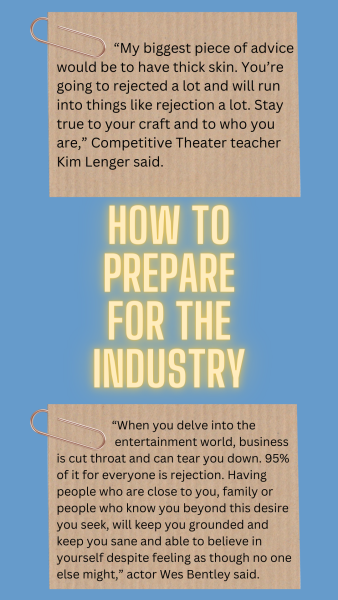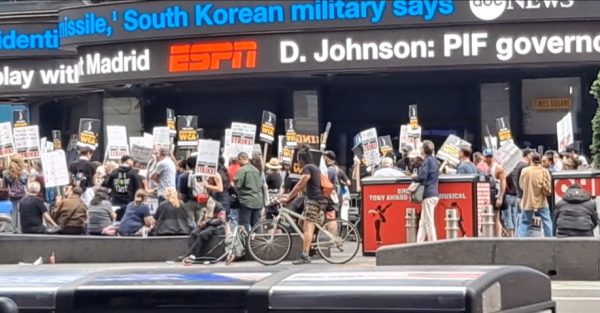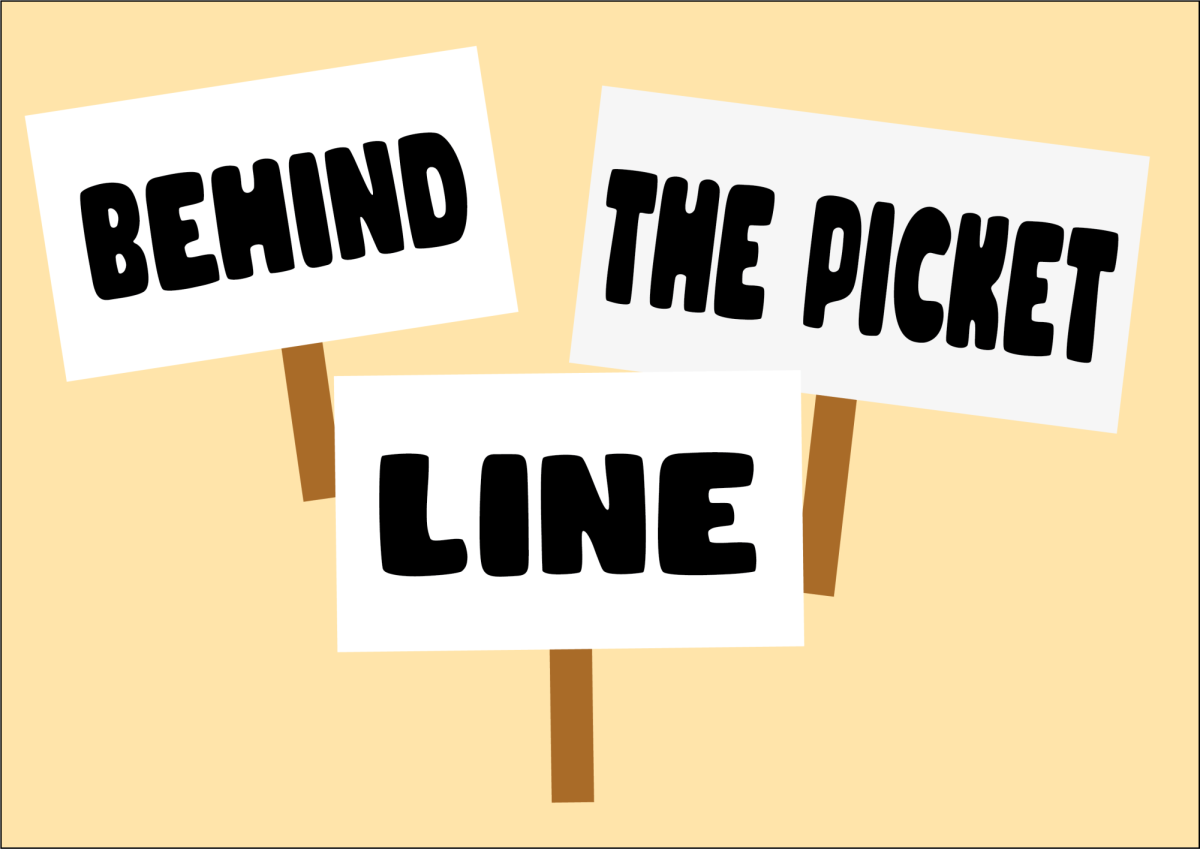
On May 2, 2023, the WGA (Writer’s Guild of America) strike brought to light issues regarding pay, job security, and a demand for regulating the use of AI in the entertainment industry. Soon after, on July 14 of this year, SAG-AFTRA (Screen Actor’s Guild – American Federation of Television and Radio Arts) struck to draw attention to discrepancies between film and TV and to support the WGA. The strikes significantly changed U.S. television industries and were why many production companies halted filming or postponed the release of series and movies.
“It’s frustrating that I can’t watch TV shows. It’s really boring right now and I’m sick of reality TV, it’s not my thing. It’s like after COVID when things shut down and we were starting to get back into the entertainment biz. We’re kind of back in that lull,” Competitive Theater teacher Kim Lenger said.
The lack of new content and the increase in re-runs were due to the unfair compensation of writers for their projects. An article from The New York Times said compensation had become stagnant and that WGA leaders argued that the system was broken and was a threat to the longevity of writing. Actor Wes Bentley of Hunger Games and Yellowstone dives deeper into the meaning of the strikes.
“Some of the issues that weren’t dealt with in the last deal had been festering and causing problems. Both unions had kicked the can down in the sense of AI, streaming, and residuals for streaming for a long time, so we all knew it would be tough to get back some of those incentives. For decades, people like writers and actors, especially actors who aren’t in the highest level, lived off residuals. We need residuals to keep a solid middle class group so we can continue to make what we do,” Bentley said.
Actors have been most worried about the use of A.I in scripts. Many fear it will replace human writers and eliminate the emotional connection in human-written plots. According to NBC Los Angeles, AI is now prohibited from authoring or editing material, and AI-completed work will not be a recognized source in the deal met last month.
“I think more and more creative things aren’t happening because of the strikes. It could be something where kids take advantage of that and decide to make stuff or it will shut down,” Lenger said.
Bentley offers insight into how incorporating AI into entertainment or depending on AI would impact the nation.
“Eventually, what they want to happen is for AI to come up with its own ideas. The thing I can’t wrap my head around is it ever having a human sense, a touch, a feel that we respond to. For me, creativity is all about the human experience and how we express that with each other. I just can’t picture an AI writer, and I definitely can’t picture an AI actor, moving you,” Bentley said.

The fight for fair compensation relates to the argument over AI usage because of the potential AI has to steal jobs in the industry. However, the demand for fair payment stems from how much production companies are profiting off of writers while the writers are receiving less money than needed for stability. Indie Wire says agreeing to a newly proposed deal would cost companies less than one percent of their annual income.
“I think, if people are doing their work, they should be compensated. Artists are not being fairly compensated with streaming services and not getting paid royalties and things like that. They barely make a fair wage. This isn’t the big movie stars, I’m talking the extras on something and that’s how you pay your bills. That’s really who I think is hurting the most,” Lenger said.
As of September 27, 2023, writers and studios unanimously voted to end the 150-day strike. CNBC highlighted that production companies Disney, Paramount, Universal, and Warner Bros. agreed on a deal that will last until May 2026, where, if ratified, writers will get an initial 5% pay increase. A discussion stressed that those who are part of a series or movie on streaming platforms will receive a 50% bonus based on viewership in the first 90 days of the release.
“In the end, that’s why we struck, that’s why we needed the negotiation. We needed to deal with issues like AI and residuals, and rebuild in the sense that we can have a career and have a life at the same time,” Bentley said.


